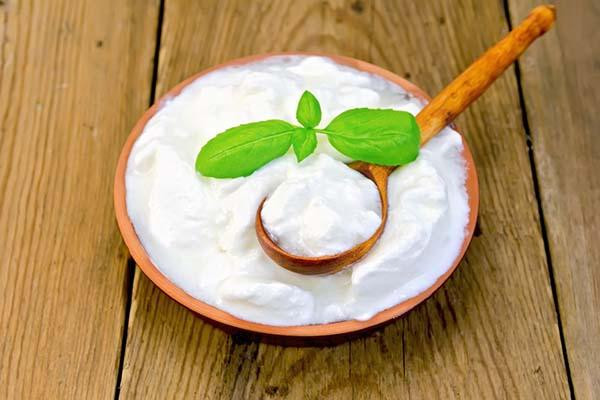
What are somatic workouts?

How to curb your stress eating

How to spot Parkinson’s disease symptoms

8 simple ways to reduce ultra-processed foods in your diet

Heart failure symptoms in women: How they’re different

GERD diet: Foods to avoid to reduce acid reflux

Strong is the new skinny

Everyday habits that sneakily weaken your bones

Don’t wait to get help for back pain

Correcting how you walk may ease osteoarthritis knee pain
The benefits of probiotic bacteria

In a society of antibacterial warfare, who would have thought that anyone would tout the benefits of bacteria? Living microorganisms found in yogurt and other cultured foods may help improve your body's bacterial environment inside and out. They're called probiotics, a name that means "for life."
More and more people are using probiotic products to treat or improve illnesses or to maintain overall well-being. In fact, a 2017 report estimated annual global sales of probiotic supplements at $3.7 billion in 2016, and that is expected to rise to $17.4 billion by 2027.
What do probiotics do?
Our bodies are home to a mix of good and bad bacteria. They're pretty much everywhere — the mouth, gut, and skin. Probiotics may help
- improve immune function
- protect against hostile bacteria to prevent infection
- improve digestion and absorption of food and nutrients.
Under normal or balanced conditions, friendly bacteria in the gut outnumber the unfriendly ones. Probiotics can act as gut-beneficial bacteria that create a physical barrier against unfriendly bacteria.
Probiotics can also help offset the bacterial imbalance caused by taking antibiotics. Antibiotics kill good bacteria along with the harmful ones, often leading to gas, cramping, or diarrhea. Potential benefits of probiotics have been seen in the treatment or prevention of many conditions such as diarrhea, irritable bowel syndrome, ulcerative colitis, and Crohn's disease.
Probiotics may help break down protein and fat in the digestive tract — a valuable benefit to help infants, toddlers, or patients who need to build strength throughout and after an illness.
Where do you find probiotics?
Fermented or cultured dairy products are a major source of probiotics. Other sources of probiotics include
- miso
- tempeh
- soy beverages
- buttermilk
- fermented milk.
The bacteria either occur naturally in these foods or have been added during preparation. Probiotics are also available as dietary supplements in capsule, tablet, or powder form.
Here are the most common strains of probiotics:
- Lactobacillus acidophilus
- Lactobacillus bulgaricus
- Lactobacillus casei
- Lactobacillus gasseri
- Lactobacillus plantarum
- Bifidobacterium bifidum
- Bifidobacterium lactis
- Bifidobacterium longum
- Enterococcus faecium
- Saccharomyces boulardii.
Bifidus regularis, a name created for marketing purposes by Dannon, is also known as Bifidobacterium animalis DN-173 010. This strain of probiotics is used exclusively in Dannon's popular Activia products, which Dannon claims promote regularity.
Keep in mind that in order for a yogurt to be considered probiotic, it must contain one of the strains listed above. All yogurts are required to be treated with the strains Lactobacillus bulgaricus and Streptococcus thermophilus.
Food marketers have found a new niche with probiotic-containing foods, which include
- probiotic cereal
- granola bars
- soy milk
- cottage cheese
- sour cream
- infant formula.
However, their claims may be based only on preliminary scientific findings. More research is needed to see whether probiotic bacteria's beneficial effects are the same when they're treated or added to food products. Dried probiotics may survive a trip through the intestines if prepared and stored properly. Heat often kills live, active cultures.
Should you start eating probiotics?
Russian microbiologist Elie Metchnikoff (1845-1916) was the first to associate the large amounts of fermented dairy products with the good health and longevity of Bulgarians back in 1907. He proposed that the acid-producing organisms in fermented dairy products could prevent what he called "fouling" in the large intestine. He believed if eaten regularly, these foods could lead to a longer, healthier life. One version of the Old Testament even attributes Abraham's long life — 175 years — to the "consumption of sour milk." Fermented milk products may have also been used to treat illnesses of the digestive tract during Roman times.
The scientific community agrees that there are potential health benefits to eating foods with probiotics. However, more research is needed to solidify the claims. The best we can say right now is they won't hurt and may help.
Remember that dietary supplements are not tested by the U.S. Food and Drug Administration like medications. And the probiotic strains in the supplements may not be specific for the condition you're looking to treat. You may want to consult with a practitioner such as a registered dietitian, who is familiar with probiotics. Always tell your physician what you are doing that may affect your health.
Disclaimer:
As a service to our readers, Harvard Health Publishing provides access to our library of archived content. Please note the date of last review or update on all articles.
No content on this site, regardless of date, should ever be used as a substitute for direct medical advice from your doctor or other qualified clinician.

What are somatic workouts?

How to curb your stress eating

How to spot Parkinson’s disease symptoms

8 simple ways to reduce ultra-processed foods in your diet

Heart failure symptoms in women: How they’re different

GERD diet: Foods to avoid to reduce acid reflux

Strong is the new skinny

Everyday habits that sneakily weaken your bones

Don’t wait to get help for back pain

Correcting how you walk may ease osteoarthritis knee pain
Free Healthbeat Signup
Get the latest in health news delivered to your inbox!
Sign Up




